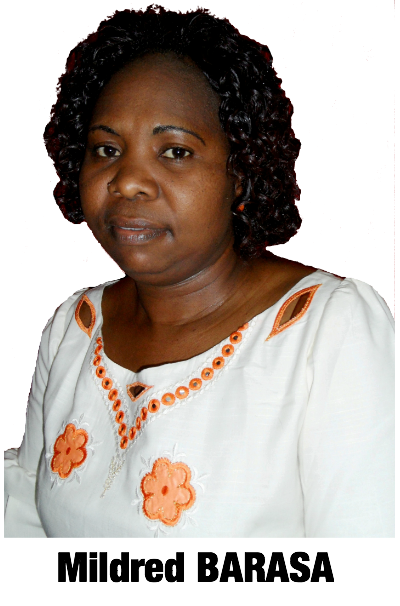This article is also available in French.
Cet article est également disponible en français.
African delegates in the ongoing COP21 – Paris climate change conference have decried the immense effects that climate change has on Africa’s agriculture.
Speaking at the venue of the conference, they all were in agreement that agriculture, which is the backbone of most African countries, continues to suffer as the problem of climate change continues to worsen.
 “It is common knowledge that rainfall patterns have changed in Africa and farmers can no longer rely on the traditional rain fed agriculture. The drought seasons have prolonged leading to acute crop failure as well as death of domestic animals for the pastoralists,” said Babacar Cissokho an agricultural engineer from Senegal.
“It is common knowledge that rainfall patterns have changed in Africa and farmers can no longer rely on the traditional rain fed agriculture. The drought seasons have prolonged leading to acute crop failure as well as death of domestic animals for the pastoralists,” said Babacar Cissokho an agricultural engineer from Senegal.
Babacar has worked in the cotton industry for the last fifteen years and as well teaches how to manage agricultural projects at the University of Gaston Berger in Senegal.
Babacar asserts that as a result of temperatures raising to very high levels, soils have been interfered with hence a number of seeds can no longer germinate while some do, albeit poorly.
He avers that the high temperatures have as well led to increase of pests that destroy farmers’ crops thus leading to losses since a number of them end up not harvesting anything.
The agricultural engineer adds that the quality of seeds are as well interfere with due to the prolonged droughts that Africa faces a problem that leads to very poor or no yields for farmers in the long run.
 Ms Mary Simat, a delegate from Kenya supports Babacar’s sentiments and affirms that the Maasai region where she comes from is experiencing untold suffering as a result of climate change.
Ms Mary Simat, a delegate from Kenya supports Babacar’s sentiments and affirms that the Maasai region where she comes from is experiencing untold suffering as a result of climate change.
“Wheat farmers continue to record high losses due to this problem and the unfortunate reality is that most of them take loans for farming since wheat farming requires a lot of resources to grow. Farmers end up not being in a position to repay Agricultural Farmers Corporation (AFC) loans after their wheat farming fails,” states Ms Simat.
She avers that some large scale wheat farmers have resorted to planting alternative crops that may not require a lot of resources to farm like maize after recording huge losses from wheat farming.
Ms Simat adds that chemicals used by farmers as fertilizers and insecticides have ruined the soils in her region hence the top soils have become so loose that they are very susceptible to soil erosion.
The Maasai are known for cattle rearing and Ms Simat is quick to mention that year in year out, her community faces an acute loss of their animals as a result of severe droughts. Cattle die in big numbers and this being the community’s source of livelihood; they are left a poor and frustrated lot as a result of the effects of climate change.
 Alban Mvila from Congo Brazzaville said that his country too suffers the same problem and regrets that his government appears to support the construction of industries at the expense of farming. The industries are owned by foreigners and according to Mr. Mvila, the Congolese government is more occupied by enabling the construction of the same, instead of carrying out tree planting campaigns.
Alban Mvila from Congo Brazzaville said that his country too suffers the same problem and regrets that his government appears to support the construction of industries at the expense of farming. The industries are owned by foreigners and according to Mr. Mvila, the Congolese government is more occupied by enabling the construction of the same, instead of carrying out tree planting campaigns.
 Bukina Faso is not any different from the three African countries mentioned above. Ms Agatha Guissou – Yaneogo who hails from the relatively small West African country is worried that the women in Bukina Faso have to walk very long distances in search for water, due to prolonged droughts that the country continues to experience.
Bukina Faso is not any different from the three African countries mentioned above. Ms Agatha Guissou – Yaneogo who hails from the relatively small West African country is worried that the women in Bukina Faso have to walk very long distances in search for water, due to prolonged droughts that the country continues to experience.
“Rain is never enough like it used to be when I was a small girl and when it comes, it does so when it is not expected at all. That means that farmers can not know when to prepare their farms ready to plant and it is sad that when it rains, it is too much in that it washes away almost all the top soils. The soils have been weakened over time by fertilizers and pesticides that are used on the farms,” avers Agatha.
She asserts that in Bukina Faso, farmers no longer celebrate the onset of what used to be the long rains, as it comes with too much wind that destroys trees, houses and all vegetation is swept and carried to rivers leaving bare lands that are of no use to the farmers. The floods kill people and animals with women being the worst casualties due to socialization and they have to walk for several kilometers in search for firewood.
The above mentioned situations have reduced the African farmers to abject poverty yet the same continent does not own industries that are responsible for climate change.
Babacar an agricultural engineer is among African delegates who are of the opinion that Africa should push for compensation from the developed world for it to tackle the problem of climate change.
He emphasizes, “African countries should ensure that they set up a competent team that will monitor the consequences of climate change on the continent and use new technologies to reduce carbon emission.”
Mildred BARASA
Photos: Mildred BARASA
- The views expressed on this blog are those of the authors alone. They are published as a contribution to the public debate and do not necessarily reflect the views of the Fondation de l’Écologie Politique as an institution.

